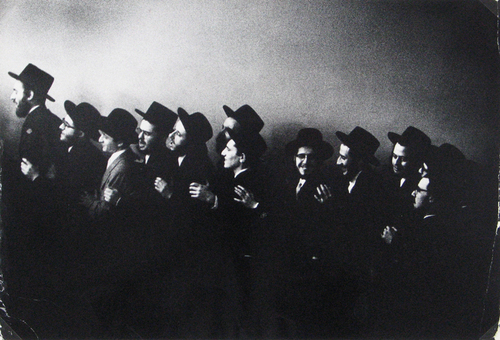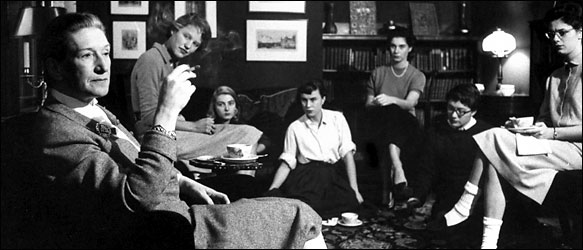"'There’s a strange thing about love,' said Sophia. 'The more you love someone the less that person likes you.' 'That’s very true,' commented the grandmother. "And then what do you do?' 'You keep loving,' answered Sophia threateningly. ‘You love more and more terribly.'"
— Tove Jansson, The Summer Book (via NYRB)
-
-
"I don't love you as if you were a rose of salt, topaz,
or an arrow of carnations that propagate fire:
I love you as one loves certain dark things,
secretly, between the shadow and the soul.
I love you as the plant that doesn't bloom and carries
the light of those flowers, hidden, within itself,
and thanks to your love the tight aroma that rose
from the earth lives in my body in darkness.
I love you without knowing how, or when, or from where
I love you directly without problems or pride:
I love you like this because I don't know any other way to love
except in this form in which I am not nor are you,
so close that your hand upon my chest is mine,
so close that your eyes close with my dreams."
— Pablo Neruda, "Sonnett XVII" in
The Poetry of Pablo Neruda, trans. Mark Eisner
-
"Tichý the man was equally disheveled. A ragged town eccentric, he had been trained as a classical painter but quit the academy after the Communist takeover forced artists to focus on socialist subjects. He remained, however, a diligent practitioner of the arts. He took three rolls of film a day, printed each negative only once, and embellished the prints with homemade frames. The results amount to a clever commentary on the state; his disguised cameras and the atmosphere of surveillance in his work subtly allude to the surveillance of the society at large. But the furtive pictures are also beautiful. They recall the scratched bodies of Degas’s bathers; they presage the soft focus of Richter. Their imperfection imprints them with the personal. As Tichý himself said, 'A mistake. That’s what makes the poetry.'"
-- from
The Paris Review's portfolio and profile of Miroslav Tichý's work
-
Miroslav Tichý
-
"That's the way it goes. For many weeks you have been exploring what seemed to be a profitable way of doing. You discovered that there was a fork in the road, so first you followed what seemed to be the less promising, or at any rate the more obvious, of the two branches until you felt that you had a good idea of where it led. Then you returned to investigate the more tangled way, and for a time its intricacies seemed to promise a more complex and therefore a more practical goal for you, one that could be picked up in any number of ways so that all its faces or applications could be thoroughly scrutinized. And in so doing you began to realize that the two branches were joined together again, farther ahead; that this place of joining was indeed the end, and that it was the very place you set out from, whose intolerable mixture of reality and fantasy had started you on the road which has now come full circle. It has been an absorbing puzzle."
— John Ashbery, from
Three Poems (via
The Muse Daily)
-
"I have the feeling that his hands ache, that he is tender
and absorbed in thoughts, he licks everything before killing it,
he bursts into tears, scraping meat, he is blessed
he has no friends, he is walking alone in the world
I have the feeling he is saying something to me
that he is watching me with regret
he knows I could never sleep with him
we are both humiliated"
— Tomas Salamun, from "
To Have a Friend," trans. Anselm Hollo
-
Frank O'Hara and John Ashbery (
via)









